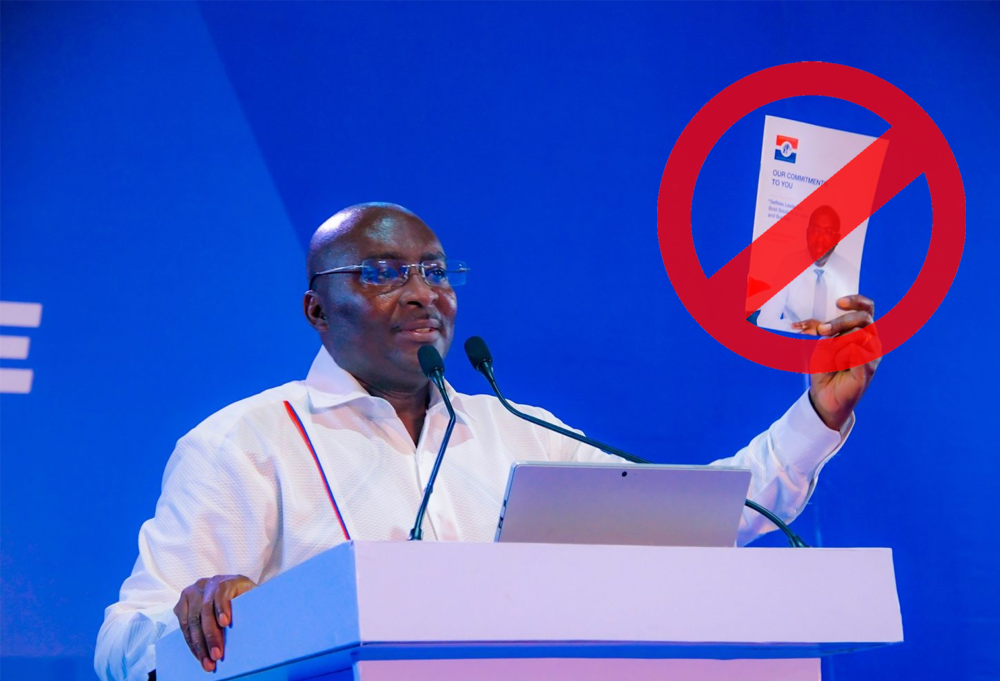The recently unveiled manifesto of the ruling New Patriotic Party (NPP) has sparked controversy due to allegations of recycling ideas borrowed from former President John Mahama’s public speeches in preparation for the opposition National Democratic Congress’s (NDC) forthcoming manifesto launch.
Public backlash and online scrutiny have highlighted similarities between President John Mahama’s policy proposals and those featured prominently in the NPP’s manifesto.
Notably, one key promise involves the elimination of the tax on betting, a pledge initially criticized when Mahama first introduced it in 2022, later echoed by the NPP in their manifesto released on Sunday, August 18, 2024.
Another contentious issue revolves around the NPP’s pledge to introduce a fixed rate for the importation of spare parts, mirroring an idea previously championed by Mahama, which was well-received by spare parts dealers at Abossey Okai.
Furthermore, the NPP’s manifesto vows to abolish the controversial E-levy, a move seen as contradictory given the party’s role in implementing the levy amidst public outcry.
Additionally, the NPP promises to establish a US$50 million fund to boost Ghana’s financial technology sector, a concept originally proposed by Mahama.
Noteworthy is the NPP’s plan to create a women’s bank, echoing Mahama’s commitment to gender-focused development initiatives.
Curiously, the manifesto also includes reducing the ministerial team to 50 members, closely resembling Mahama’s proposal to govern with 60 ministers.
The extensive parallels between the NPP’s manifesto and Mahama’s policy agenda have ignited social media debates, with widespread comparisons drawing attention to the perceived lack of originality in the ruling party’s proposals.
Critics have condemned Vice President Bawumia, accusing him of duplicity and misrepresentation in his political statements.
Bawumia’s track record, including debunked claims about the African Development Bank blacklisting Ghana and allegations of fabricating economic data during Mahama’s administration, has eroded public trust in his economic stewardship.
Despite his efforts to position himself as a digitalization champion, Bawumia’s tenure as the head of the economic management team has faced scrutiny over rising inflation and currency depreciation, casting doubt on his reform agenda’s credibility.

